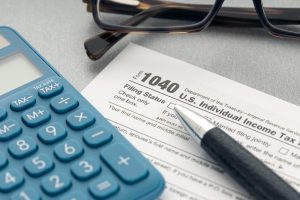In today’s digital age, where everything seems to be shifting online, the traditional method of paper filing taxes still holds its ground. Despite the rise of electronic filing options, many individuals and businesses continue to opt for the tactile process of filling out paper tax forms.
To make everything crystal clear, we’ll delve into the pros and cons of paper filing taxes, exploring its intricacies and weighing its advantages and disadvantages.
Understanding Paper Filing Taxes
Before diving into the pros and cons, it’s essential to understand what paper filing taxes entail. Paper filing involves manually filling out tax forms, such as the 1040, and submitting them via mail to the respective tax authorities. While it may seem antiquated compared to e-filing, paper filing offers its own set of benefits and drawbacks.
Pros of Paper Filing Taxes
Tangible Documentation
One of the primary advantages of paper filing taxes is the tangible documentation it provides. Taxpayers have physical copies of their tax returns, which can be stored securely for future reference.
Without any iota of doubt, digital data can be vulnerable to cyber threats and technological failures, and having hard copies of important documents offers peace of mind.
Control Over the Filing Process
Paper filing allows individuals to have complete control over the filing process. They can review each form meticulously, ensuring accuracy and completeness before submission.
This hands-on approach can be particularly beneficial for individuals who prefer to have a thorough understanding of their tax returns and want to avoid potential errors that could arise from automated software.
Privacy Concerns – Paper Filing Taxes
For individuals concerned about privacy and cybersecurity, paper filing offers a sense of security. There’s no risk of data breaches or identity theft associated with electronic transmission.
With paper filing, sensitive information is physically sealed in envelopes and sent through traditional mail channels, reducing the likelihood of unauthorized access.
Ease of Accessibility
Paper forms are readily available at post offices, libraries, and IRS offices. This accessibility is beneficial for individuals who may not have reliable internet access or prefer traditional methods.
Additionally, paper forms can be obtained upon request, ensuring that all taxpayers have access to the necessary documents, regardless of their technological capabilities.
Cost Savings – Paper Filing Taxes
While electronic filing often incurs fees, paper filing is typically free. This can result in cost savings for individuals, especially those with simple tax situations.
Moreover, paper filers may avoid fees associated with electronic payment methods, such as credit card processing fees or electronic fund transfer charges.
Simplicity for Certain Taxpayers
Some taxpayers may find paper filing simpler, especially if they have straightforward tax situations with minimal deductions or credits.
For individuals who are not comfortable navigating online tax software or who prefer a more traditional approach to tax preparation, paper filing can offer a straightforward and familiar process.
Cons of Paper Filing Taxes
Manual Data Entry
Paper filing requires manual data entry, which increases the likelihood of errors. Mistakes in calculations or transcription can lead to delays in processing and potential penalties.
Unlike electronic filing, which often includes built-in error checks and validation features, paper filing relies solely on the accuracy of the taxpayer’s input, leaving more room for inadvertent mistakes.
Processing Time
Paper-filed returns generally take longer to process compared to electronic filings. This can result in delays in receiving refunds or notifications of any issues with the return.
While electronic returns are processed automatically by computer systems, paper returns must be manually reviewed and entered into the IRS’s processing system, leading to longer wait times for taxpayers.
Limited Resources
The IRS may allocate fewer resources to processing paper filing taxes, leading to longer wait times for processing and customer support.
With the increasing popularity of electronic filing, the IRS has prioritized digital channels, investing more resources in developing and maintaining electronic filing systems.
As a result, paper filers may experience longer wait times for assistance or resolution of issues related to their returns.
Storage and Organization – Paper Filing Taxes
Maintaining physical copies of tax returns and related documents requires adequate storage space and organization.
Without proper filing systems, documents can be misplaced or lost. Unlike electronic records, which can be easily stored and accessed digitally, paper documents require physical storage solutions, such as filing cabinets or storage boxes, which can take up valuable space and require ongoing maintenance.
Inefficiency for Complex Returns
Individuals with complex tax situations, such as those with multiple income sources or itemized deductions, may find paper filing taxes cumbersome and inefficient.
Unlike electronic filing, which can streamline the tax preparation process through automated calculations and data imports, paper filing requires manual completion of forms and schedules, which can be time-consuming and prone to errors.
Environmental Impact – Paper Filing Taxes
Paper filing contributes to paper waste and has an environmental impact. In an era where sustainability is a growing concern, electronic filing offers a greener alternative.
By reducing the need for paper forms, envelopes, and postage, electronic filing helps to conserve natural resources and minimize carbon emissions associated with mail delivery and paper production.
So, Is Paper Filing Taxes a Good Idea?
In conclusion, the decision to paper file taxes comes with its own set of pros and cons. While some individuals may prefer the tangible nature and privacy associated with paper filing, others may find it inefficient and prone to errors.
Ultimately, the choice between paper filing and electronic filing depends on individual preferences, tax situations, and technological comfort levels.
As technology continues to evolve, it’s essential to weigh the benefits and drawbacks of each filing method to make informed decisions regarding tax compliance.
Whether opting for the traditional approach of paper filing or embracing the convenience of electronic filing, taxpayers should prioritize accuracy, security, and efficiency in meeting their tax obligations.





